Dyscalculia 101

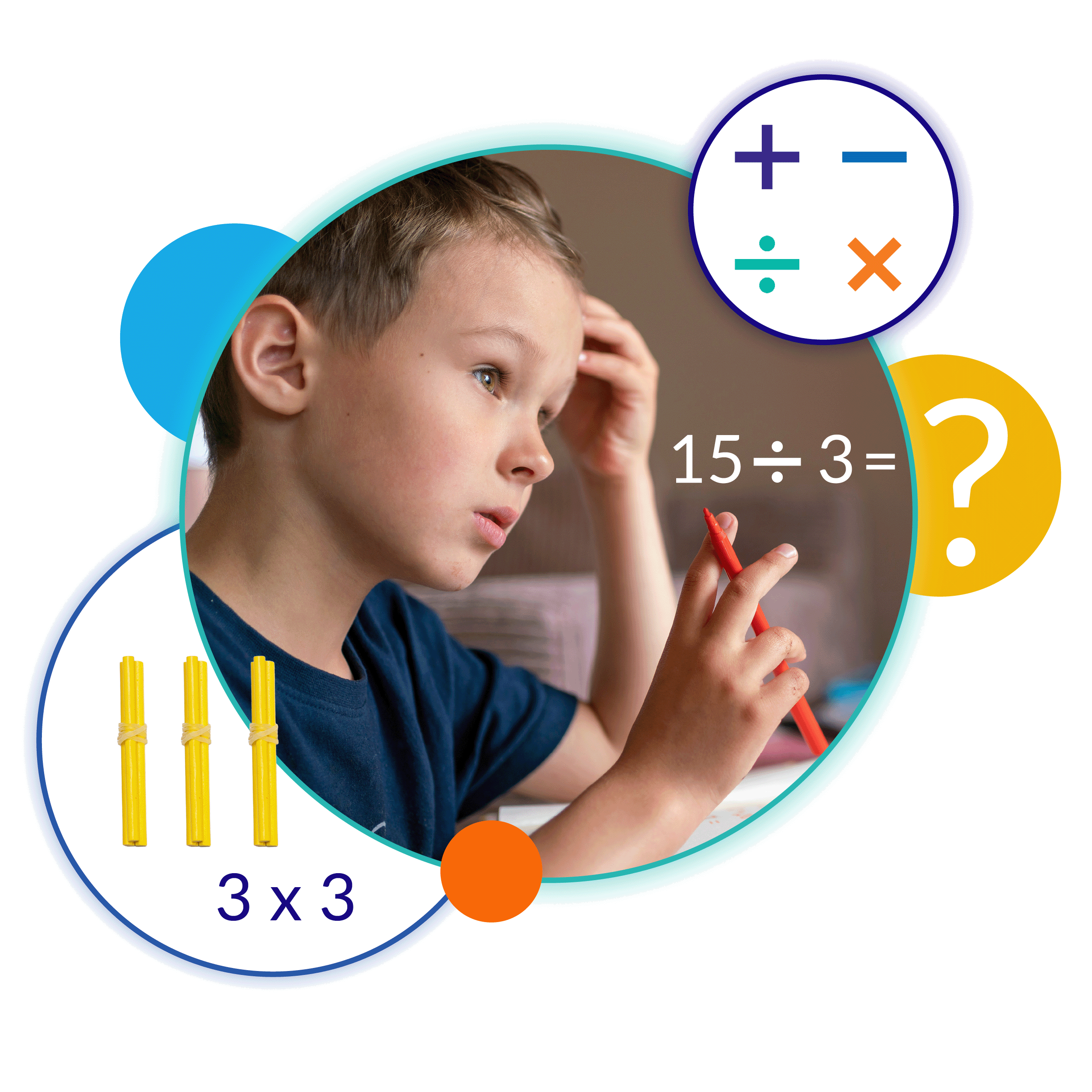
Dyscalculia: The Unaccounted-For Disability
Dyscalculia is a learning disability that affects one’s ability to learn math and may cause difficulty counting. recognizing patterns, telling time, having a sense of direction, and more.
Research shows that people with dyscalculia succeed in math when engaged in multisensory learning methods.
This is similar to how students with dyslexia, a disorder where you may have difficulties identifying how letters and words relate to speech sounds, may benefit from a multisensory approach.
Dyscalculia Statistics: Understanding the Numbers
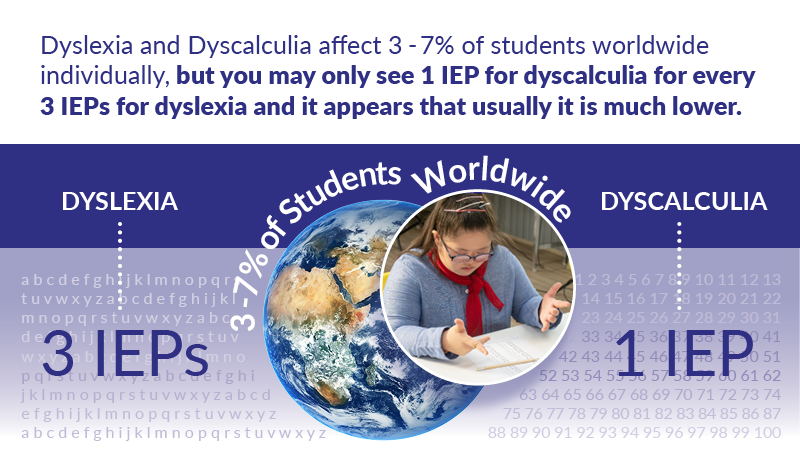
Screen for Dyscalculia as Early as Three
Our dyscalculia screener, DySc, is web-based and can be easily administered by early childhood educators and parents for learners 3-4, 5-7, 8 and up.
Free Dyscalculia Resources
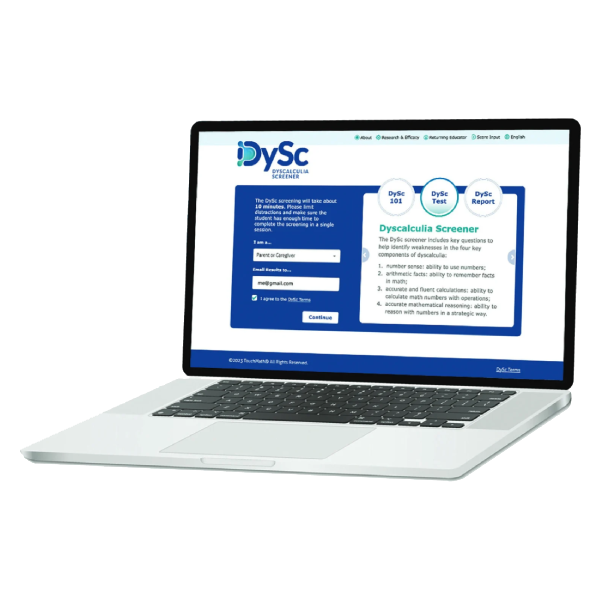
Dyscalculia Screener
Our comprehensive dyscalculia screener, DySc, is aligned to the American Psychiatric Associations DSM-5-TR and available at no cost to help identify weaknesses in four key components of dyscalculia.
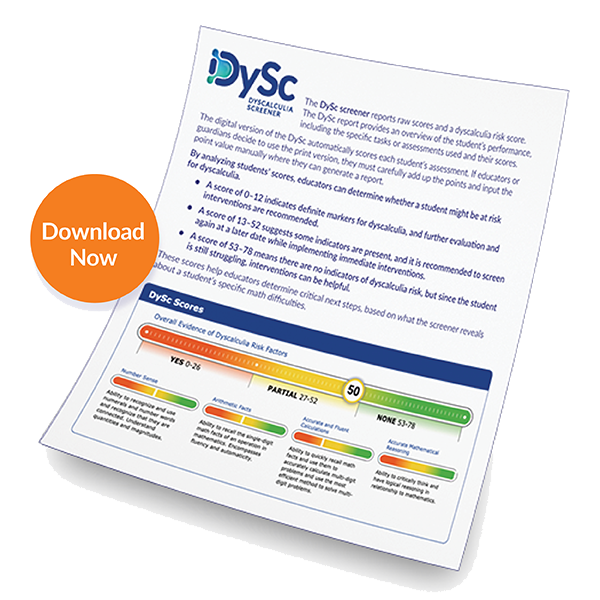
Dyscalculia White Paper
Get everything from what is dyscalculia to evidence-based strategies to support your students in achieving math mastery in our white paper, The Transformative Potential of Early Screening for Dyscalculia, The Discounted Specific Learning Disability.
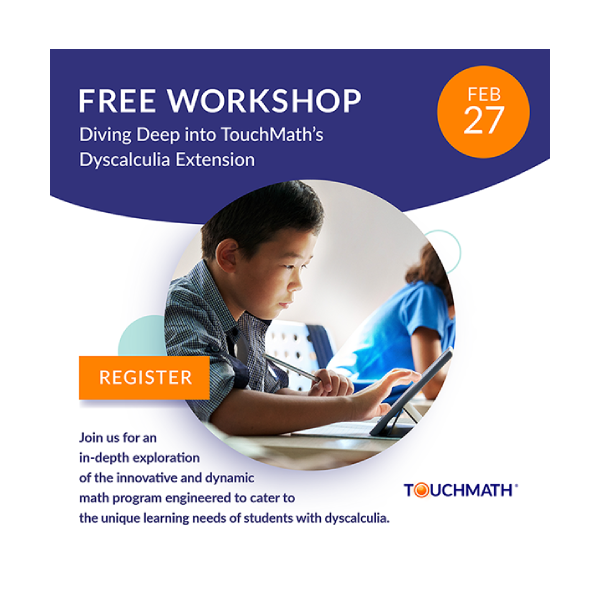
Dyscalculia Workshops
See what growing up undiagnosed with dyscalculia looks like, get lessons, and more with our library of workshop sessions.
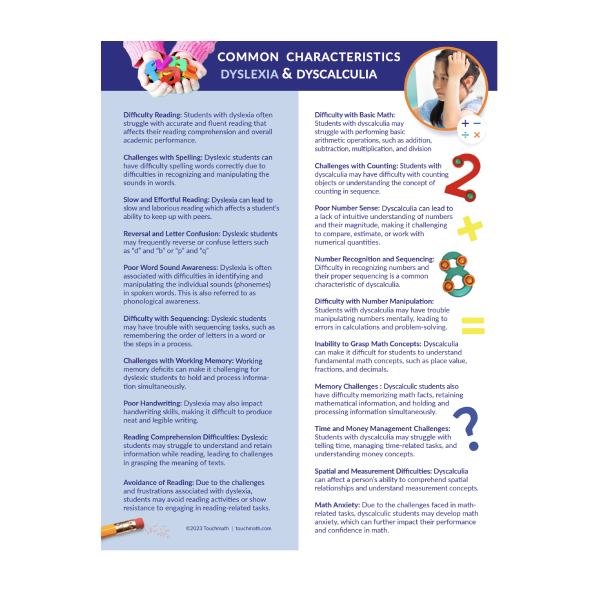
Dyscalculia Knowledge Center
Want more on dyscalculia and TouchMath? Check out our Teacher’s Lounge for blogs, resources, and more!
Want More Resources on Dyscalculia?
We've got you covered! Check out our latest blogs below.
Dyscalculia is Hard to Spell: The Art of Advocacy
Dyscalculia is Hard to Spell: The Art of Advocacy According to the Learning Disabilities Association of America, 1 in 5 children in the U.S. have learning and attention issues. Learning and attention issues are difficulties that affect various aspects of
Behind the Misconceptions: Hidden Disabilities
Behind the Misconceptions: Hidden Disabilities According to the National Center for Learning Disabilities, an estimated 15% of the U.S. population, equivalent to one in every seven individuals, grapples with a learning disability. This translates to roughly 10 million children and
How Does TouchMath Help Students with Dyscalculia?
How Does TouchMath Help Students with Dyscalculia? Dyscalculia is a learning disability that affects one’s ability to learn mathematics, as compared to same age peers who receive identical instruction. It may cause difficulty with counting, working memory for numbers, ability
Empowering Students with Dyscalculia: Alabama SB171 and TouchMath
Empowering Students with Dyscalculia: Alabama SB171 and TouchMath In the landscape of public education, the pursuit of excellence in mathematics education is a paramount goal. Alabama Senate Bill 171 (SB171) is a significant step towards achieving this objective. SB171, known
Math Solutions for Students with Dyscalculia
Math Solutions for Students with Dyscalculia At TouchMath, we’ve championed inclusive learning through intentional experiences for nearly half a century, addressing the acute needs of students with dyscalculia. Recognizing the need for a solution to support this overlooked student population,
Navigating Dyscalculia: A Close Look at State Laws and How They Impact Education
Navigating Dyscalculia: A Close Look at State Laws and How They Impact Education In educational policy, there is an emerging awareness and understanding of what dyscalculia is, how it can be identified, and how students with dyscalculia can be supported
Download: 10 Common Signs of Dyscalculia
Want the latest and greatest on dyscalculia and math interventions from TouchMath?
Complete the form to get monthly updates, resources, articles, Fun Sheets and more! Once submitted, you will get immediate access to our downloadable, 10 Common Signs of Dyscalculia.



